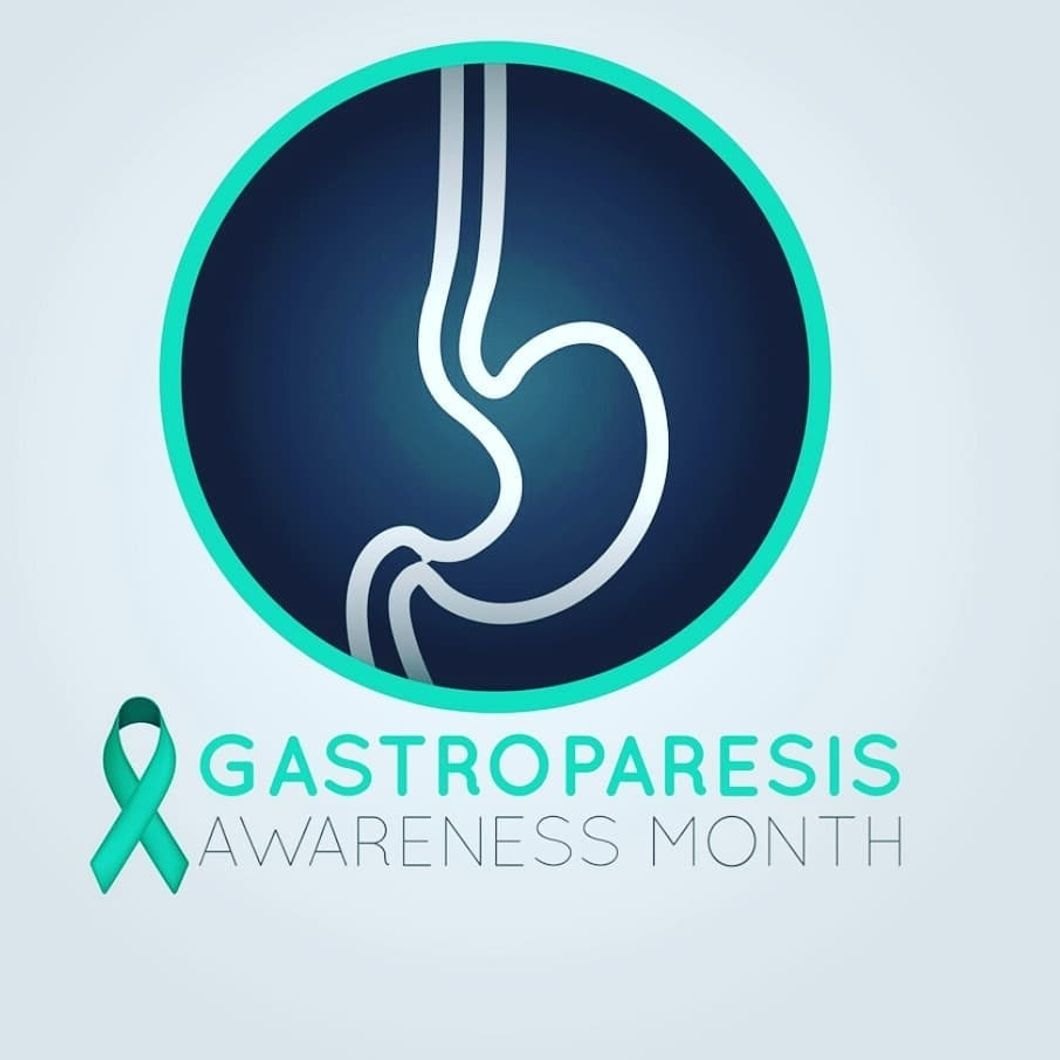When you read the title of this article you were probably thinking "Gastro-what?" and I would not be surprised by that reaction at all because not many people know what gastroparesis is. If that was your reaction, it's a good thing you're reading this article because now you're going to know exactly what it is and how you can help in raising awareness and finding a cure!
This month, August, is National Gastroparesis Awareness Month. Gastroparesis, sometimes called Delayed Gastric Emptying, is a motility disorder of the stomach. It causes the muscles of the stomach to become partially or fully paralyzed which means they do not contract to break down the food that is eaten and push it into the intestines properly. This causes the stomach to empty slower than normal and can leave food sitting in the stomach for hours or even days. This is a chronic condition and currently, there are few treatments and no known cure.
Symptoms of this disease include: severe nausea and vomiting, extreme bloating, feeling full after eating a small amount, abdominal pain, shortness of breath and heartburn among others. Sometimes these symptoms such as the abdominal pain and nausea can become so severe that they are actually debilitating. Excessive vomiting can lead to dehydration and malnutrition. All of the symptoms overall have a big negative impact on quality of life physically, emotionally and even financially.
Treatment that is offered consists of diet changes and medication to help soothe nausea and pain when they occur, surgeries, or feeding tubes. The type of treatment depends on how severe a certain case of gastroparesis is as they are all different for each patient.
Gastroparesis is a rare disease and unfortunately does not have much adequate research being done. Because there is so little research and understanding of this disease someone who is suffering from gastroparesis may experience symptoms for up to five years before being properly diagnosed. It took doctors four years to diagnose me. This is a serious problem. Not only is getting accurately diagnosed a battle but once you are diagnosed treatment is another battle because there are so few options and no cure and often times the treatments don't help very much or have really big risks associated with them that could potentially make matters worse.
Some people, even doctors overlook gastroparesis but it is a serious condition that can very negatively affect one's health and can, in some cases, become fatal. We need to raise awareness for this awful disease so that it can get the adequate research it requires and the funding for that research so patients who suffer from it can have a chance at a better, pain-free, tube free, food-filled life. So, wear green this month in honor of gastroparesis awareness and head over to www.g-pact.org to see the different ways you can donate and help in fighting for awareness and a cure.

















